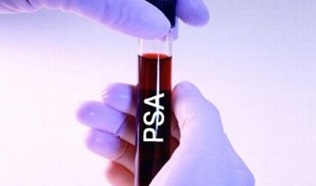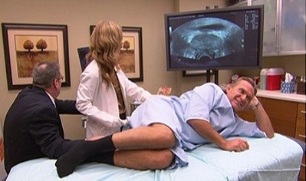Acute prostatitis is an inflammatory process in the prostate from which no man is protected. According to expert reviews, this disease is detected in half of men of reproductive age. Acute prostatitis is an infectious lesion of the prostate, accompanied by edema and the formation of purulent foci in the organ. Some symptoms appear immediately, while others are discovered only during the diagnosis. What are the causes of the disease, how does it manifest itself and what treatment measures are taken?
Why is it created?
The causes of the acute form of the disease in men lie in the infection of organs with gram-negative (E. coli, Proteus, Klebsiella and others) and gram-positive (streptococci, staphylococci) bacteria.
Acute bacterial prostatitis often develops as a result of urogenital infections transmitted by unprotected sex, such as:
- Chlamydia. Candidiasis.
- Gonorrhea.
- Trichomoniasis and others.
In addition, urethritis is often the cause of acute prostatitis: pathogenic bacteria enter through the prostate ducts that open into the urethral wall. Much less often, the infection occurs when men develop acute cystitis and bacteria from the bladder enter the prostate. There is also a hematogenous method of infection, in which pathogens spread through the blood through the body.
In addition to these reasons, there are others:
- Disorders in intimate life (interruption and short duration of intercourse, erectile dysfunction).
- Body hypothermia.
- Inactivity caused by inactive work or lifestyle.
- Pathology of the rectum.
- Consequences of surgical intervention on urogenital organs.
- Respiratory viral infections.
- Stagnant phenomena that occur in the vessels of the pelvis and often lead to damage to the drainage of the prostate canal.
- Difficulty defecating, varicose veins.
The causes are different, but they all contribute to the development of acute prostatitis.
How does pathology manifest itself?
Symptoms mainly depend on the degree of inflammation.
The following symptoms of acute prostatitis are observed in the catarrhal phase:
- Severity and painful symptoms in the genital area.
- Painful and frequent emptying of the bladder, which bothers men especially at night.
- Possible slight increase in temperature.
- No signs of intoxication.
Palpation may not detect the changes or a slight enlargement of the prostate may be found. In men, this test causes less pain. Symptoms of acute prostatitis are also detected by tests. In the secretion of the gland there is an increased level of leukocytes, the presence of threads of mucus and pus, and leukocytes also appear in the urine. Timely treatment of catarrhal type of prostatitis will allow the person to be cured in a week and a half.

Acute follicular prostatitis has more intense symptoms. Men are worried about pain in the perineum, which is given to the sacral region, the anus. At this stage, the patient experiences painful urination. Pain also leads to difficulty in defecation. The temperature rises to 37, 5-38 ° C.
Certain symptoms are also diagnosed. As he probes, the doctor determines that the gland has enlarged and thickened, while it becomes asymmetrical, when pressed, it causes sharp pain. The number of purulent threads and leukocytes in the urine increases, they are deposited in the urine as a precipitate. If adequate treatment is prescribed, the prognosis is favorable.
If the disease is not treated, the next stage develops - parenchymal acute type of prostatitis. The symptoms of this form of the disease in men are as follows:
- Temperatures rise to 39-40 ° C.
- The patient is trembling.
- There are signs of general weakness.
- Loss of appetite but constant thirst.
- Initially, urination becomes much more frequent, difficult, and after a while it stops.
- The patient suffers from constipation and bloating.
The symptoms of the acute type of prostatitis are more pronounced, for example, the pain radiates to the rectal area, becoming pulsating. Sometimes the symptoms are complemented by swelling of the pararectal tissues, in which case the method of rectal examination cannot be applied. An admixture of pus is noticed in the urine. Acute disease should be treated urgently, otherwise an abscess will develop. In the case when a weakly virulent pathogen enters the body, the symptoms practically do not appear, then they say that the patient has a subacute type of prostatitis.
How to treat?
Men are interested in the question of how to treat acute prostatitis? According to experts, the treatment of acute prostatitis is based primarily on eliminating the cause of the disease. As a rule, drugs with antimicrobial action are used. Antibiotics are selected individually in each case based on the performed diagnosis. Taking antibiotics lasts until complete recovery. Such treatment, according to the doctor's examinations, will enable the stopping of acute processes that lead to the active reproduction of pathogenic microorganisms in the tissues of the infected male organ. Treatment of acute prostatitis must be comprehensive.
Not only antibiotics are used, but also other drugs:
- Immunostimulating drugs.
- Means that improve blood circulation.
- Nonsteroidal inflammatory drugs.
- Vitamin complexes.
- Herbal remedy.
- Sedatives and antidepressants.
Preparations with analgesic and antispasmodic effects can relieve men of unpleasant painful feelings. Suppositories for introduction into the anus with an anesthetic in the composition have a similar effect. Suppositories, as a rule, have antibacterial properties, having a mild effect directly on the cause of the disease - a pathogenic agent. At home, rectal suppositories with sea buckthorn oil, propolis, honey, as well as enemas with a warm decoction of herbs will help cope with pain.
In order to normalize metabolic processes in the prostate in men and accelerate the regeneration of damaged tissues, a course of bioregulatory peptides is prescribed. Treatment also includes immunostimulants and modulators, nonsteroidal anti-inflammatory drugs (tablets or injections), solution for injection and vitamin complexes.
If antibiotics or NSAIDs cannot cope with the infection, hormones are included in the treatment.

After removing the main symptoms of acute prostatitis, treatment is supplemented with physiotherapy:
- Electrophoresis. Prostate massage.
- microwave and some others.
A good effect, as evidenced by examinations of patients, is the treatment of prostatitis with phytopreparations.
These medications are recommended for home use for preventative purposes. Herbal tablets can replace decoctions and infusions of medicinal herbs that are prepared at home.
Symptoms of acute type of prostatitis perfectly remove decoctions from tansy flowers, hop hops, celandine. Horsetail, calamus root, chamomile are effective.
With a significant delay in urine outflow in acute prostatitis, the catheter is not introduced, and treatment is performed by excision of the bladder wall - cystotomy.
If a prostate abscess is diagnosed, treatment is performed surgically, while the abscess is opened, the cavity is drained. In the acute form, bed rest is shown, as well as refusal of sexual intercourse, diet food.
As doctoral examinations show, timely identification of the cause of the acute form of the disease and a competently performed treatment procedure can cure the disease in a fairly short time.
























